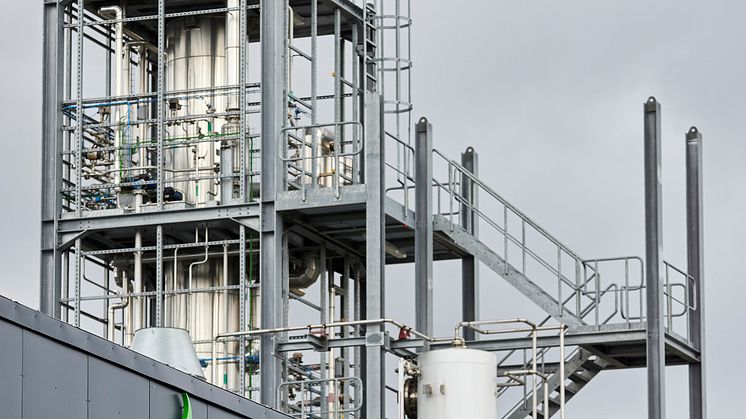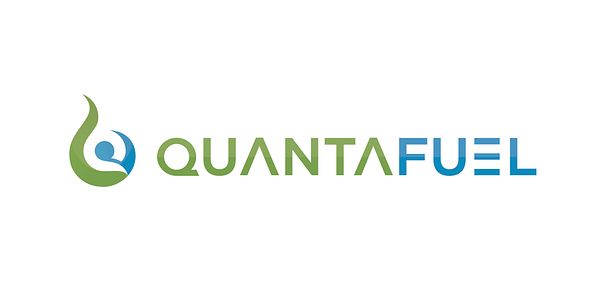
Press release -
Quantafuel ASA, BASF and REMONDIS want to cooperate on chemical recycling of plastic waste
- More recycling of plastic waste which would otherwise be incinerated
- Favorable regulatory environment decisive for implementation
BASF, Quantafuel and REMONDIS have signed a Memorandum of Understanding (MoU) to jointly evaluate a cooperation in chemical recycling including a joint investment into a pyrolysis plant for plastic waste.
It is intended that REMONDIS, one of the world's leading waste and water management companies, supplies suitable plastic waste to the plant, and chemical company BASF uses the resulting pyrolysis oil as feedstock in its production Verbund as part of its ChemCyclingTM project. Quantafuel intends to provide the technology and to operate the plant. The company is a specialist for the pyrolysis of mixed plastic waste and the purification of the resulting pyrolysis oil ; the technology is jointly developed and being held with BASF. The location of the pyrolysis plant will be evaluated together.
Each year, almost 20 million metric tons of plastic waste in Europe gounrecycled. By establishing chemical recycling as a complementary solution to mechanical recycling it is possible to bring back more plastic waste into the materials cycle, which would otherwise be incinerated. The pyrolysis technology can be used to process plastic waste streams that are not recycled mechanically, e.g. for technological or economic reasons.
To maximize a circular economy for plastics, the parties will identify which of the waste plastics provided by REMONDIS could undergo chemical recycling in future.
"BASF has set itself the goal to process 250,000 metric tons of recycled feedstock annually from 2025 onwards. In this regard, it is important to use feedstock derived from plastic waste that would otherwise not have undergone recycling," said Dr. Lars Kissau, Senior Vice President Global Strategic Business Development at BASF's Petrochemicals division. "Partnering with companies from the waste management and recycling sector as well as innovative technology providers is an ideal constellation to build a sustainable circular economy model for previously non-recycled plastic waste. However, solving the plastic waste challenge will only be possible in a favorable regulatory environment."
"Remondis and BASF are excellent partners for realizing an ambitious project like this in Central Europe on a tight timeline, and operating it successfully for the long term," stated Kjetil Bøhn, CEO of Quantafuel. "We are steadily moving forward in the ramp up of our initial plant in Skive and are happy to now start implementing the roll-out of the technology."
Jürgen Ephan, Managing Director REMONDIS Recycling, pointed out the importance of the joint project:
"In order to achieve the sustainability objectives set by the European Union in its visionary Green Deal, it is essential to increase recycling quotas wherever technically and economically feasible. We believe that chemical recycling can provide a meaningful contribution and are therefore happy to join forces with BASF and Quantafuel on the way towards a higher rate of recyclability."
Legislation on EU and national level will create the framework for chemical recycling and therefore shape the ability how it can contribute to a more circular economy for plastics. This includes acknowledging that products based on chemically recycled feedstock are counted towards achieving recycled content
targets. Pyrolysis oil derived from plastic waste is fed into BASF's Verbund production, thereby saving the same amount of fossil resources. Since the pyrolysis oil is inserted directly at the beginning of the chemical value chain, the final sales products have the exact same properties as products made from fossil feedstock. The share of recycled material is allocated to the end products according to a third-party certified mass balance approach which allows BASF to offer its customers certified products carrying the name affix CcycledTM.
About BASF
At BASF, we create chemistry for a sustainable future. We combine economic success with environmental protection and social responsibility. More than 110,000 employees in the BASF Group contribute to the success of our customers in nearly all sectors and almost every country in the world. Our portfolio is organized into six segments: Chemicals, Materials, Industrial Solutions, Surface Technologies, Nutrition & Care and Agricultural Solutions. BASF generated sales of EUR59 billion in 2020. BASF shares are traded on the stock exchange in Frankfurt (BAS) and as American Depositary Receipts (BASFY) in the U.S. Further information at www.basf.com.
About REMONDIS
REMONDIS is one of the world's leading privately run recycling, service and water companies with around 800 business locations in over 30 countries and across four continents. Founded in 1934, this family-run business employs more than 36,000 people and generates a turnover of EUR7.9 billion (2019). Each year, it processes about 30 million tonnes of recyclable materials and provides services for local authorities, small and medium-sized businesses and industrial firms as well as for around 30 million people. Operating in many different fields of business, REMONDIS makes an important contribution towards protecting the environment and conserving natural resources - from recovering valuable raw materials from industrial and household waste, to producing high quality recycled raw materials, all the way through to transforming non-recyclable materials into a range of different fuels. Moreover, the company is increasingly helping to advance the switch from fossil fuels to renewables by using biomass as a source of energy. REMONDIS sees itself as an adviser and point of contact for industrial, commercial and retail businesses as well as for local authorities as it helps them to find regional and bespoke solutions.
For further queries, please contact:
Kjetil Bøhn, CEO +47 91573818
Kristian Flaten, CFO +47 95092322
From day one, Quantafuel’s fundamental idea has been to solve the world’s plastic waste problem by transforming soiled plastic into new products. What makes Quantafuel unique, is that we have developed technology that purifies the gas formed by the process and alter the molecules. This allows us to produce a chemically-recycled, attractive product that satisfies a huge demand in the market.
Quantafuel solution is to place a value on plastic waste. We must start treating used plastic as a valuable resource, establishing a model for waste plastic collection and upgrading it to recycled products. The entire value chain needs to be circular.
